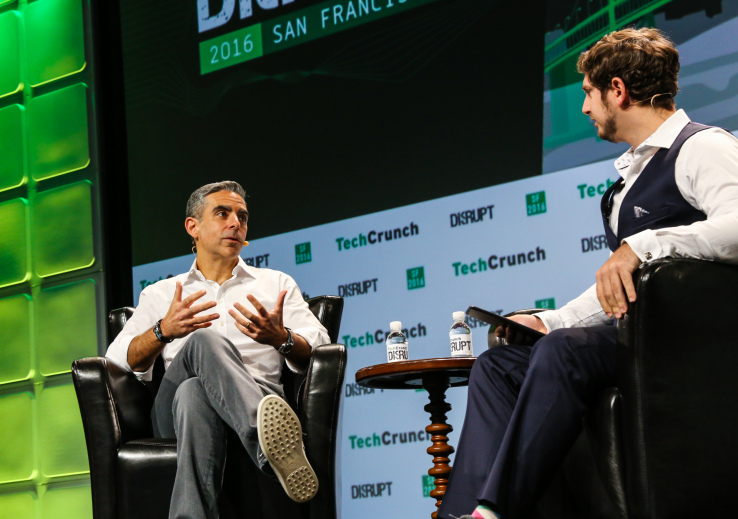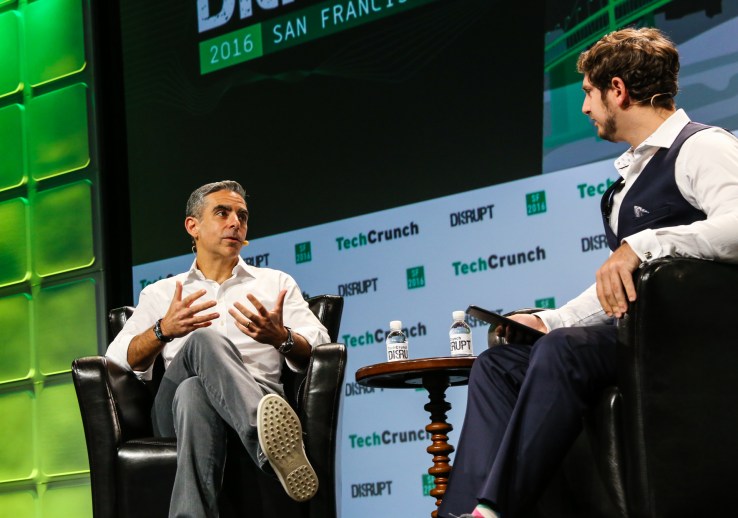

Earlier this summer, Facebook began to disable messaging in its mobile web app in order to push people to use its mobile Messenger app. However, this morning at TechCrunch Disrupt SF 2016, Messenger head David Marcus said that the option to use the mobile web experience isn’t going away entirely. Instead, the company is selectively disabling the mobile web view for users of certain devices.
Asked why Facebook would shut down mobile web support, given its expansive resources, Marcus replied, “do you know any other messaging app that has a mobile web experience?”
He noted also that the whole point of having a separate, mobile app is to create an ecosystem of push notifications, which helps to create an environment where users respond faster to incoming messages.
According to a recent survey, people told Facebook that they feel people respond to them faster on Messenger than on text, Marcus noted.
Still, mobile web support for Messenger is something that many have relied on, having not wanted to install another application on their phone, or not having the resources to do so.
Marcus explained that some users would not be affected by Facebook’s decision to push users to download the mobile app. For example, Facebook has decided not to remove access “on older Android devices that don’t have the memory or the network conditions,” to install Messenger, he said.
While Marcus didn’t clarify the exact requirements a device would have to meet in order to be able to use the mobile web version of Messenger, he noted that Facebook stopped serving the mobile web site to high-end devices, but not others.
Getting users to download the mobile app is part of Facebook’s larger, long-term vision for the platform. Eventually, Messenger wants to be the default messaging experience on users’ mobile devices – not SMS.
To get there, Marcus said, “it’s just a question of reach…it’s just about being able to reach all the people you want to reach. We just need to grow that, so people will continue using it.”
Already, Facebook has made a strong move to get Android users to switch over from using their phone’s native texting app by offering support for both Facebook chats and SMS texts in its Android Messenger mobile app.
“It’s a no-brainer to use Messenger [on Android],” he said. “The experience is so much better.”

